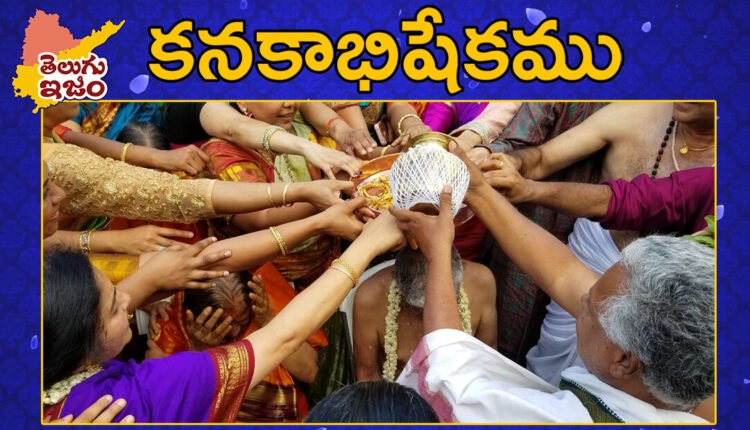Kanakabhishekam : A Ritual Offering Of Sacred & Holy Items
Kanakabhishekam : A Ritual that involves the offering of gold and other sacred items during an abhishekam ceremony. Here is a description of the Kanakabhishekam ceremony:
- Preparation: Nine or eleven gold flowers, tulsi dalams (leaves of the holy basil plant), Ganga water, and water from Rameswaram wells are gathered. The fourth-generation elders of the house are seated for the ceremony.
- Arrangement: Tulsi dalams and gold flowers are placed in a silver perforated plate or vessel.
- Mantras: A Brahmin recites mantras and prayers while the ceremony takes place.
- Abhishekam: The Abhishekam begins with the pouring of the consecrated water over the idols or deities. The water is typically poured using a gold ladle or vessel.
- Generational Blessings: The grandchild takes their son in their hand and guides them to perform the abhishekam. This symbolizes the passing down of traditions and blessings to the next generation.
- Individual Participation: Following the grandchild, each person present takes turns performing the abhishekam using the consecrated water.
- The offering of Sacred Items: During the ceremony, various sacred items such as gold letters, silver knives, umbrellas, chappels (footwear), money, glasses, sandalwood, stools, tulsi dalams, and calf (representing prosperity) may be offered.
- Dasa Dana: On the fourth week, the great-grandchild offers ten kinds of donations (dasadana) to the Brahmins. These donations can include food, clothes, and other essential items.
- Clothing Offering: Finally, the great-grandchild presents clothes to the elders as a gesture of respect and gratitude.
Kanakabhishekam & Opportunity
The Kanakabhishekam ceremony is a way to honor deities, seek blessings, and express devotion. It is also seen as an opportunity to uphold family traditions and involves multiple generations in the auspicious ritual.
Also Read : Panchanga Sravanam : A Great Significance Cultural & Traditional Festival

